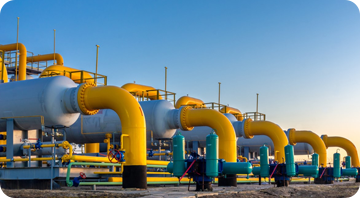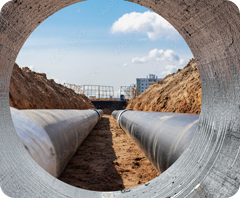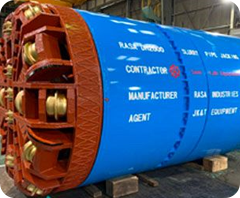Importance Of Underground Utility Infrastructure
Installed beneath the ground, underground utility infrastructure are “hidden” networks of pipes that provides essential services to a modern society.
Underground utility infrastructure provide the reliability, efficiency, and sustainability required for a functioning community and economy, by bringing electricity, natural gas, water, sewage, telecommunications, etc for communities, businesses, and residences.
Here are some key advantages of underground utility infrastructure and their continued relevance to the economy and modern society:
Underground utility infrastructure are designed to withstand various weather and environmental challenges, providing robust and reliable services even in adverse conditions. This reliability ensures the uninterrupted flow of essential resources to homes, businesses, and institutions.
With underground utility infrastructure, valuable space above ground is preserved for other meaningful purposes, such as residential, commercial and social development. This efficient use of space contributes to the overall liveability and functionality of our cities.
Underground utility infrastructure plays a crucial role in promoting sustainability by facilitating the efficient distribution of resources. For example, water and wastewater systems help conserve water and protect the environment, while underground electrical grids can support the integration of renewable energy sources.
By concealing utility infrastructure underground, cities can maintain a clean and visually appealing environment. This allows for the preservation of architectural and historical landmarks and ensures that natural landscapes remain untouched.






